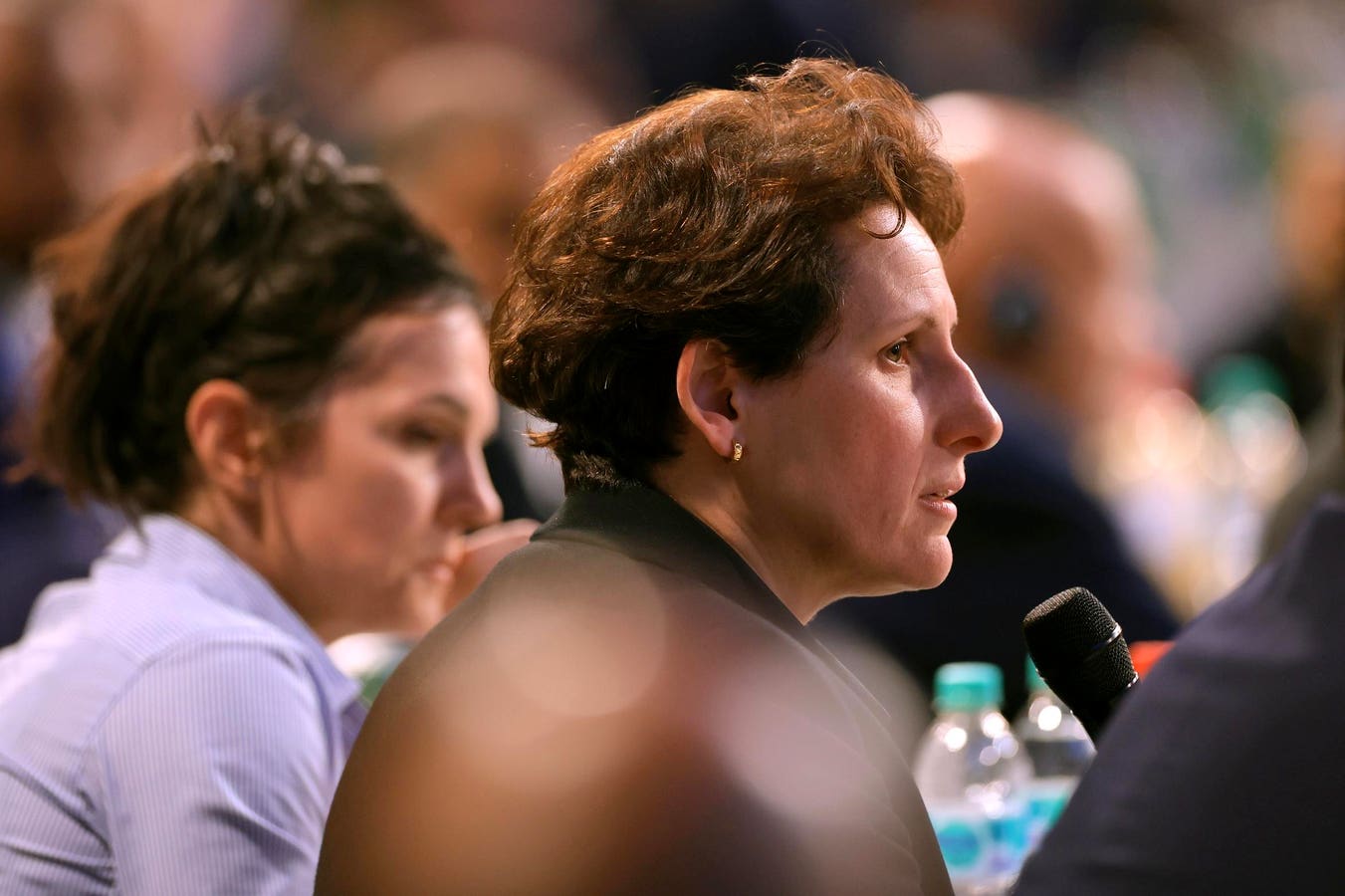LUQUE, PARAGUAY – MAY 15: Palestine Football Association Vice-President Susan Shalabi Molano speaks … More
Susan Shalabi was exhausted – tired of traveling halfway around the world from Amman to Asuncion, tired of fighting against the soccer establishment. But she was in Paraguay to deliver an important message on behalf of the Palestinian Football Association (PFA), a message FIFA, soccer’s global governing body, has heard before—and ignored. Shalabi told me: “That’s the usual FIFA, that’s the motto. Procrastination.”
After FIFA president Gianni Infantino wooed delegates with promises of a projected $13 billion revenue and trips to FIFA Summits in Miami – just before a walkout by the European Council members in protest of his late arrival – Shalabi finally got the chance to speak.
Once again she raised the issue of Israeli settlement clubs in the West Bank. With the war in Gaza, her call carried great urgency. Shalabi and PFA president Jibril Rajoub have long been passionate advocates for Palestinian soccer. The pair have been protesting the Israeli presence in the West Bank for over a decade.
She told the Congress: “Let’s not keep rewriting the minutes of meetings and passing the bucket from one committee to the other, while football in Palestine is being erased. We need to act now.”
That urgency was lost on FIFA. The organisation’s secretary general Mattias Grafström stepped in—not with a decision, but with yet more delay. Instead of acting on the PFA’s request to conclude the investigation into settlement clubs within a month, he deflected.
He said: “The matter was discussed by the Governance, Audit and Compliance Committee and the work of the Governance, Audit and Compliance Committee remains ongoing, as does the investigation of the Disciplinary Committee.”
Shalabi and the PFA invoked articles 64 and 65 of the FIFA Statutes – territorial rules that prohibit member associations from organizing soccer on another member’s land without permission. At the 2024 FIFA Congress in Bangkok, Thailand, they called for “appropriate” sanctions against the Israel Football Association (IFA), citing “unprecedented international human rights and humanitarian law violations.”
FIFA’s response then was to commission a legal review by independent experts, but the assessment and decision were postponed to allow Israel to compete in the Olympic football tournament in Paris, France. The issue was remitted to the FIFA Governance Audit and Compliance Committee (GACC), but the committee has still not come to a resolution. Grafstrom added that the GACC has “requested expert reporting, including on topics of territoriality, to support its work.”
FIFA has a history of kicking this can down the road. In 2017, the global governing body dismissed a report by South Africa’s Tokyo Sexwale that laid out three actions to address the Israeli settlement clubs. None were taken.
Football in Gaza and the West Bank has all but collapsed. Yet amid the devastation, a few glimmers of hope remain—Palestine’s U-20 national women’s team recently won the West Asian Football Federation (WAFF) Championship, overcoming Jordan 4-2 in a penalty shootout in the final following a 1-1 draw.
“Even at the grimmest of times, you know, we still hold on the hope, to the belief that someday we will get justice,” said Shalabi. “If you don’t have hope, then what’s the point in anything?”

